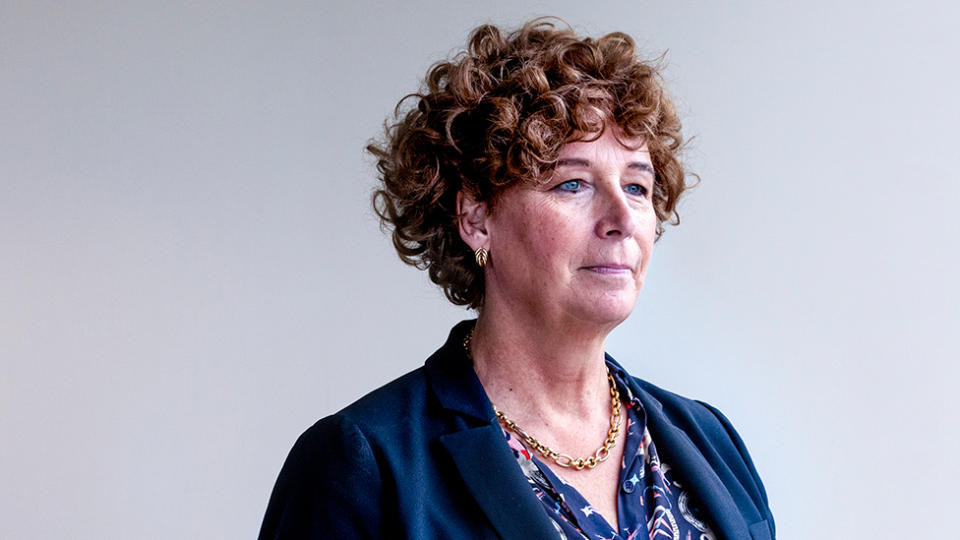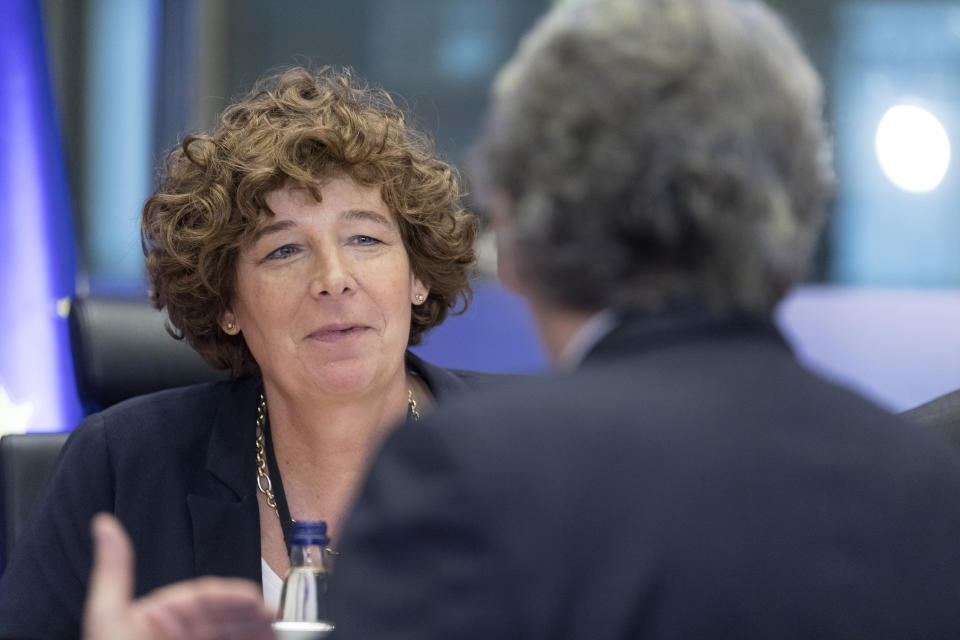Meet Petra De Sutter, the world’s first transgender Deputy PM
Petra De Sutter is an extremely accomplished woman. She’s the Deputy Prime Minister of Belgium, a professor of gynaecology and an outspoken advocate for improved access to medically-assisted reproduction. She also happens to be transgender.
De Sutter’s recent appointment to the Belgian cabinet makes her the world’s first transgender cabinet minister. It’s a noteworthy achievement, but one that has been largely unremarked on. Could this lack of media frenzy over her gender identity be seen as a strong sign of progress in terms of trans rights? It depends how you look at it, says educator and media representative at Transgender Victoria, Sally Goldner AM.

“There has been some shift in the way trans and gender diverse people are represented over the past 25 years,” says Goldner. “And the fact that Petra hasn’t been blatantly vilified shows that we have travelled some distance. However, on the other hand, the fact that her appointment wasn’t widely celebrated also shows that we still have a problem in making trans and gender diverse people highly visible in all areas of life, to give a spark of hope for people who can say ‘oh, there’s someone who’s just a bit more like me.’”
RELATED
Twilight's Kristen Stewart on being a queer actor: 'I was hounded'
Clem Ford: ‘Isn’t it amazing what a $300K education can buy?’
JK Rowling defends comments about transgender people despite backlash
Despite the subdued fanfare of De Sutter’s new role, it is still a significant appointment, believes Goldner. “For a long time, trans people have faced so much unjustified negativity and discrimination, that it can be very hard to see yourself achieving your potential,” she says. “So, when someone gets to a prominent position like this, that is very important. It shows other trans people that although it can be challenging, there’s a hope that you can do your best in life, in the same way as the broader population.”
Although she has been open about her trans identity, De Sutter has been clear that she doesn’t want only this to define her, saying she doesn’t want to “be reduced to [my] transgender past. I have many others [parts of identity]. I want people to talk about me because of my work, because of my political actions.”

Goldner agrees that it’s important trans people aren’t “just seen as a limited stereotype.” She adds: “Trans people are people like everyone else, with skills and talents - who happen to be transgender as well. We need to value people for whatever positives they bring as a whole person – so while [De Sutter’s] trans identity might bring a different perspective to some of her skills, she’s shouldn’t be solely defined by being transgender.”
However, De Sutter is planning on using some of the different perspective she inevitably brings to the table to “trigger the debate” around trans people and encourage visibility “in countries where [the fact gender identity is a non-issue] is not yet the case.” So far, she has only had one high-profile detractor; a far-right politician who said De Sutter wanted to “destroy and replace all cornerstones of our Western civilization”, who was immediately criticised by other MPs. De Sutter’s aim is to educate people like this, with the hope of changing systems.
“The art is to channel anger into action, otherwise you just become an angry, sad or even depressed person,” she said. “You don’t have to be the subject of your anger. Being angry in politics means fighting for the good cause.”
This take on negativity is important, believes Goldner. “Some people might see the [negative] comments about trans people and feel it can be a barrier to being themselves,” she says. “Although as a whole society is increasingly more supportive, or at the least neutral, when there are negative comments they can be incredibly intense. And if someone vulnerable is hearing those things, they might think they’ll never be able to have a quality of life. The answer to this is being able to have a calm, respectful conversation that looks at the situation in a rational way.”
![De Sutter is planning on using some of the different perspective she inevitably brings to the table to “trigger the debate” around trans people and encourage visibility “in countries where [the fact gender identity is a non-issue] is not yet the case.” Photo: Getty](https://s.yimg.com/ny/api/res/1.2/hObhR8uSTSFTN2imwvcCjA--/YXBwaWQ9aGlnaGxhbmRlcjt3PTk2MDtoPTY0MA--/https://media-mbst-pub-ue1.s3.amazonaws.com/creatr-uploaded-images/2020-10/e661ed10-0dd3-11eb-8ffb-b91702bc13a1)
Australia has a way to go with acceptance of trans people and the rights they should be afforded. In a review of 23 countries about transgender rights, Spain and Sweden topped the poll, with more than 80 per cent of people in these countries believing trans people should be protected from discrimination by the government, and be allowed to use the bathroom of the person they identify with. Sixty-eight per cent of Australians felt the same, putting us ninth on the acceptance list, just above the US. Russia was last in the poll, with just 44 per cent of people agreeing with the above statements.
“Australia has made some reforms, but there’s still a long way to go,” says Goldner. “We need to think about providing equitable health care both in specialist and generalist settings, and more support from those in high places.”
While the hope is that Australia can one day emulate Belgium’s progressive attitude and acceptance, for now Petra De Sutter is bringing hope to the worldwide trans community. Her ability to tread the line between being an advocate for trans rights, whilst also being exceptional in her field in her own right, is much admired amongst trans – and wider - communities. “It’s an individual’s call as how to much they want to talk about being trans,” says Goldner. “What she really shows is that the important thing is to value people on their strengths, regardless of their gender identity.”
Click here to sign up to our daily newsletter to get all the latest news and hacks. Or if you have a story tip, email us at lifestyle.tips@verizonmedia.com.

 Yahoo Lifestyle
Yahoo Lifestyle 




